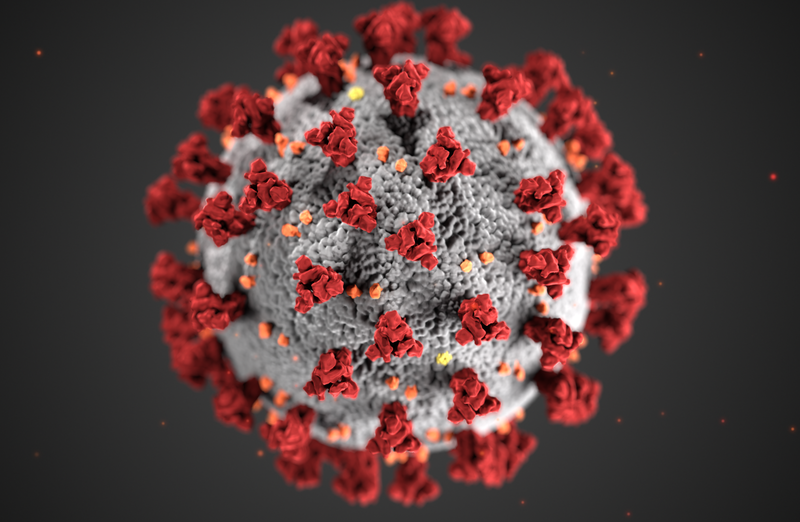What Would We Have Done? A COVID-19 Update
If we had known about the current state of the world and how much it has changed a year ago from now, we would have cherished that time – the time we had left before the world changed forever. If we had known that schools would shut down, that we would be learning online, that we would have to quarantine, that we would have to wear masks everywhere, what would we have done? Would we have walked a little slower down the hallway to english or math class remembering how it feels to be lost in the crowd? Would we have scheduled more time to be with our friends? Would we have smiled at more people when walking by them?
Since March, the world seems to be changing faster than ever before. The world is even a different place than it was last month. More and more questions continue to fill our minds. What will the rest of the year look like? What will next year look like? What is the status of a vaccine? These unknowns can cause stress and anxiety about the future, but if 2020 has taught us one thing, it is that we will be able to accept and adapt to any new changes that come.
The first big question that we tend to ask: What’s happening with the virus in Connecticut and the United States? On the national level, the US reported 57,420 new COVID cases as of October 10th, the highest number of new cases in almost two months. This was the third day in a row with new case numbers higher than they have been in a while.
Across the country, hospitalizations are increasing every day. There have been so many new cases and hospitalizations in Wisconsin, a field hospital will be opening next week to aid in treating people. Other states such as New York have started to re-enforce restrictions on certain communities where there has been a significant increase in cases.
Additionally, the Center for Disease Control (CDC) has recently found young adults to be the “spark” in certain hotspots across the country. According to the CDC, teens will contract COVID-19 through asymptomatic transmission, bringing it home to their family members who then spread it to other members of the community, causing outbreaks in communities of all ages.
To focus on Connecticut and the Northeast, Dr. Deborah Birx, White House Coronavirus Task Force Coordinator, has warned that the Northeast is on the verge of an “alarming” increase in cases. Connecticut has seen such an increase, but trends show it to be associated with specific towns, causing the Governor to take a town by town approach to addressing it. New London, with the most significant increase in positive cases and hospitalizations, has moved backwards in the re-opening process ad placed more restrictions on public gatherings. While Connecticut has not seen increases as large as other states, residents mus continue taking precautions to prevent the spread, especially with cold/flu season and Thanksgiving fast approaching.
On a more positive note, scientists are hoping to train dogs to detect those who are infected with COVID-19. Previously, dogs have been able to use their incredible sense of smell to identify people with malaria and certain types of cancer among other diseases. Scientists are hopeful the same could apply to the coronavirus with proper training.
Another question at the top of everyone’s minds is when there will be a vaccine. As of now, there is no vaccine, but scientists are working hard to find one that is safe and works to protect as many people as possible. Some sources even state that a vaccine may be available by the end of year, giving hope to many. However, a Gallup Survey conducted in August found that at least 35% of Americans would choose not to receive a vaccine if it were ready now. Many worry about the rate of which it will be created and its true safety and ability to stop the spread of the disease.
On the other hand, with so many people refusing to get the vaccine, controlling the spread of COVID-19 would be incredibly difficult. The federal government has also expressed they would not require the vaccine for the general population, mainly because it would be unconstitutional. The power to mandate vaccines rests with the states, leading some to believe that many states may require its residents to receive the vaccine. If some states mandate the vaccine while other do not, this could stir some major controversy in the future. Either way, a vaccine would bring a change and sense of hope to citizens worldwide.
The entire world is in a state of unknown, which can be worrisome and stressful. However, this year has allowed many to take a step back and examine what is truly important in their life, and to find happiness in the small things like a delicious meal or a beautiful sunset. This year has been challenging and most likely will continue to be, but the global community has learned so much through the unique experiences they have endured. People around the world should be excited for the new year and all that could happen. They should look forward to what is to come, not worry about the uncertainty of their current states. Instead of thinking about what we would have done a year ago if we had known, we need to think about what we will do a year from now. What will we do in the new year? What will we do when the world opens back up with its arms open to everything and anything? What will we do?
Sources:
https://www.cnn.com/2020/10/10/health/us-coronavirus-saturday/index.html
https://www.bbc.com/news/world-51235105
https://time.com/5898049/covid-19-sniffing-dogs/
https://www.today.com/health/will-covid-19-vaccine-be-mandatory-t190838

